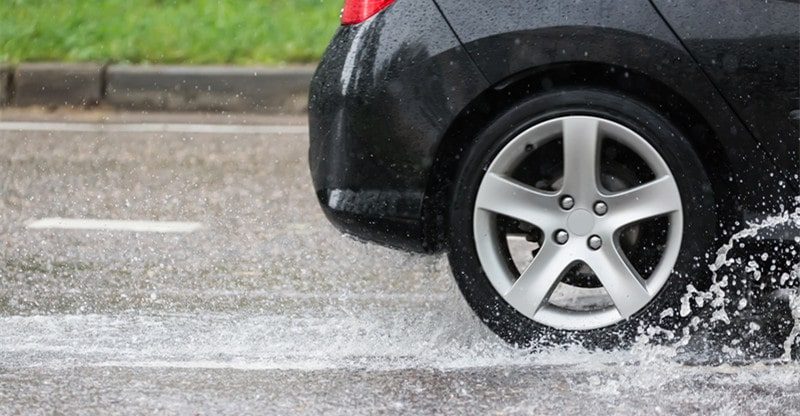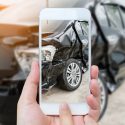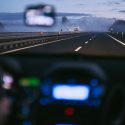How Do Poor Weather Conditions Impact Car Accident Claims?
Sometimes knowing the rules of the road, knowing what to do after a car accident and following safety advice aren’t enough to be safe on our roadways. This is especially true when it comes to safe driving in bad weather. A car accident lawyer can help you after an accident that is caused by bad weather to see if other drivers caused your accident by failing to take weather conditions into account.
Weather Changes How We Drive
Weather conditions can change what we know about safe driving and can change how a car accident attorney analyzes your accident case.
Bad weather requires drivers to be extra careful and sometimes to follow a different set of rules to safely operate a vehicle. Sadly, many people don’t do this, which makes bad weather a leading cause of traffic accidents and traffic fatalities.
The way we are used to driving must change when the weather gets bad, and many people simply don’t know how to do that. Others sometimes fail to take the precautions needed to be safe in different kinds of weather.
For example, the speed limit — normally a safe speed to travel — can be dangerous if someone is driving in fog, on wet pavement or in snow. Even strong wind can make some vehicles unstable at higher speeds.
At times when the weather appears clear, recent bad weather can still create dangerous roadways. For example, after a hard rain, accumulated water can cause puddles to form, leading to hydroplaning. In some parts of the country, rain can be heavy enough to cause flooding that prevents a driver from even knowing where the road is. Some drivers have ended up driving into lakes or canals as the rising water on the road “merged” with waterways nearby.
Driver Knowledge and Experience in Bad Weather Are Key Factors
Driver knowledge (or lack of knowledge) can play a role in bad weather accidents as well. For example, someone from the northeast may be used to driving safely in the snow, whereas someone from Atlanta, where snow is rare, may have no idea how to adjust their driving habits when snow falls.
Indirect Impacts Can Play a Role
Weather can also indirectly affect road conditions. For example, the wind that may be safe to drive in can blow dangerous debris into the roads. Some weather conditions can even chip away at the pavement, creating dangerous potholes or ditches.
Bad Weather Is a Leading Cause of Accidents
According to the U.S. Department of Transportation (DOT) Federal Highway Administration’s Road Weather Management Program, bad weather causes a large number of car accidents. The DOT estimates that 21% of all motor vehicle crashes from 2007-2016 happened in or because of some form of bad weather. Of all car accident fatalities, 16% involved bad weather of some kind.
Rain caused most of those accidents, but it wasn’t just falling rain. Even wet pavement was a huge indicator of traffic accidents and greatly increased the number of them. For example, rain and wet pavement accounted for 15% and 10% of all car accidents respectively. The wet pavement was the most dangerous condition and led to the highest number of crash fatalities — nearly double the second-highest total, for the falling rain.
Snow, ice and slushy pavement also contributed to car accidents, accounting for a total of 11% of the total number of accidents nationally through the 10-year period that was studied.
Every kind of bad weather condition also had the effect of slowing down roadways. Speed reductions on roads decreased by about 10%-30%, delays that led to heavier traffic, where more accidents are likely to occur.
What to Do After a Car Accident in Bad Weather
It’s important to call the police and your car accident lawyer if you’ve been in an accident. But first, there are some specific things you should remember about what to do after a car accident caused by bad weather. Often they are things you wouldn’t have to think about in an accident that happens in good weather. Knowing what to do after a car accident will not only help you but will also help the people you are in the vehicle with this will also help get the proper compensation after an accident.
For example, in bad weather, visibility is low. That means you will want to be very careful of oncoming traffic, which may not see the stopped vehicles on the roadway. If you are able to safely leave your car and go to the side of the road or somewhere that will be safe from oncoming traffic, you should do so.
If you carry them, you should set up flares or other markers that will be seen in bad weather to alert other drivers to your presence.
From a safe position, you should take as many pictures as you can of the accident scene, damage to cars and debris on the roads. These can help your car accident attorney prove your case later. Be very careful when you get out of your car to take pictures of the accident. You may not be visible to other cars in rain, snow or fog.
If bad weather is clogging roads, it may take a little longer for the police to arrive on the scene. Unless you are at risk of being hit by oncoming traffic, try not to move your vehicle. The police and your car accident lawyer will need to see where the cars came to rest after the accident.
Who Is At Fault?
Because the way we drive must change depending on bad weather, the way your car accident attorney will figure out if someone was negligent will also change. Knowing what to do after a car accident will also help your lawyer investigate the accident.
Simply seeing that the other driver was driving at the speed limit doesn’t mean as much when there is bad weather. Your car accident lawyer will try to determine whether the speed limit was too dangerous a speed to drive, considering the road conditions.
Your car accident attorney may also try to see if the other vehicle may not have had the proper equipment, like snow tires, to account for weather conditions.
The police report can help you and your car accident attorney decide what to do after a car accident. Often, the police report will reflect the weather conditions at the time of your accident, but your lawyer may even hire an expert meteorologist to describe what the weather was like when the crash happened.
A Car Accident Lawyer Can Help After a Bad Weather Car Accident
You may be confused and worried about what to do after a car accident, especially one that happens in bad weather. Although the situation may seem frightening and the weather can present a lot of different factors in a car accident case, your car accident attorney can help.



